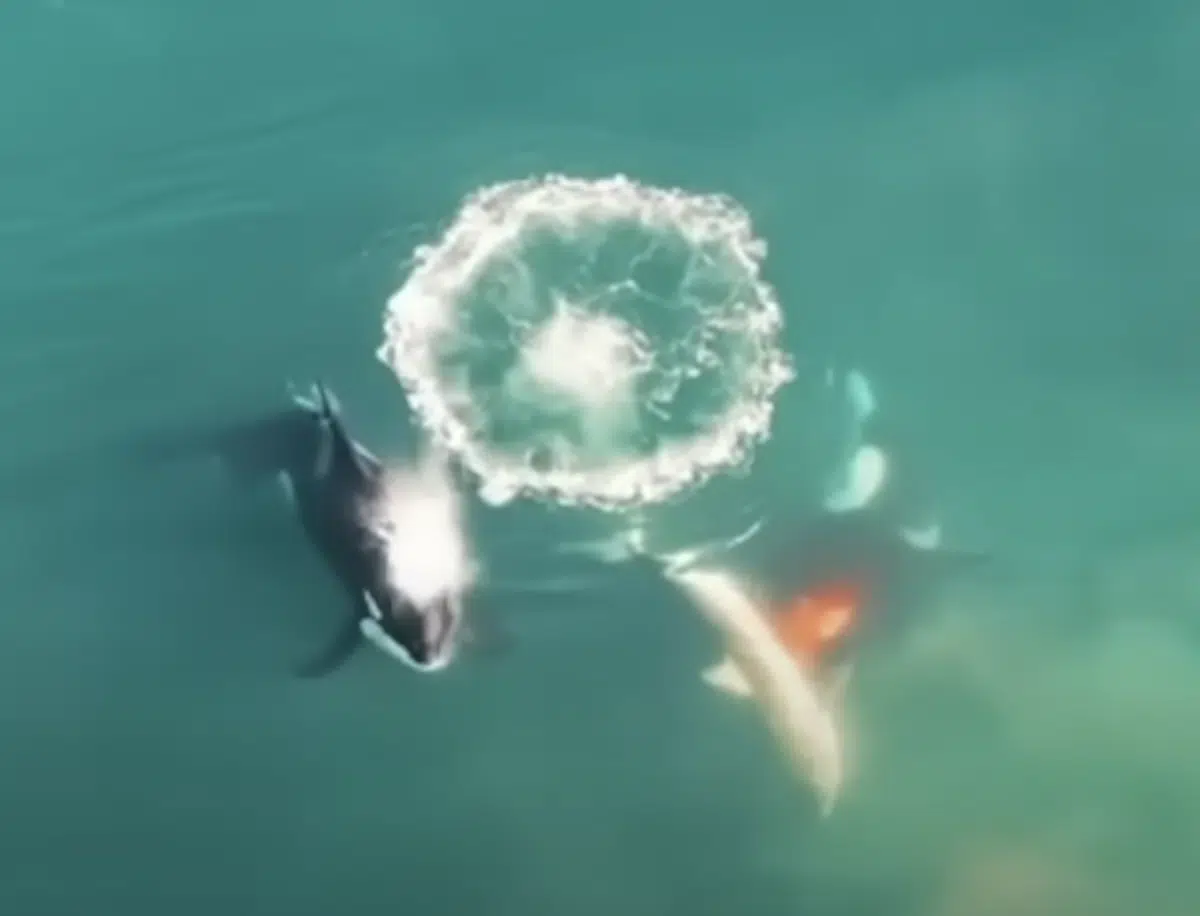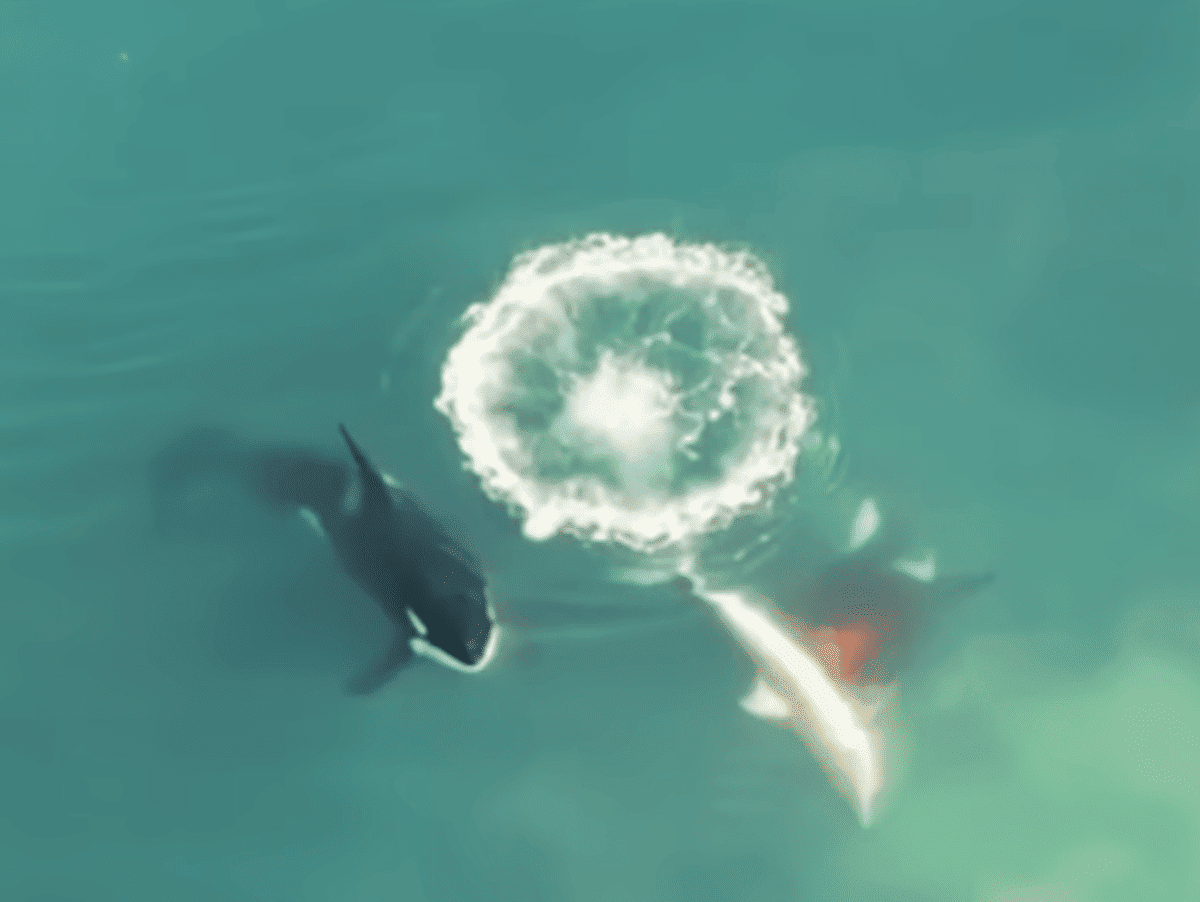
As apex predators, Orcas instil fear in even the top predators of the oceanic food chain. Lethal and intelligent hunters, they’re known to kill great whites only for their livers and toss seals skywards for fun – before feasting.
South Africa’s active coastline is home to an array of deadly and harmless animals, from dolphins to hammerhead sharks and whales to tuna, making it fruitful terrain for killer whales, and they certainly fill their boots.
Their bright nature was brought to light, having been recently spotted in Cape Town’s False Bay weeks after Great Whites were sighted there for the first time in over five years – Coincidence? I think not.
Orcas Kill Great Whites in South African Waters:
Orcas hunting is a mesmerising performance of teamwork, precision and fatality, while making it look seamless and effortless.
Video by Global News via Youtube
Characteristics of Orcas:
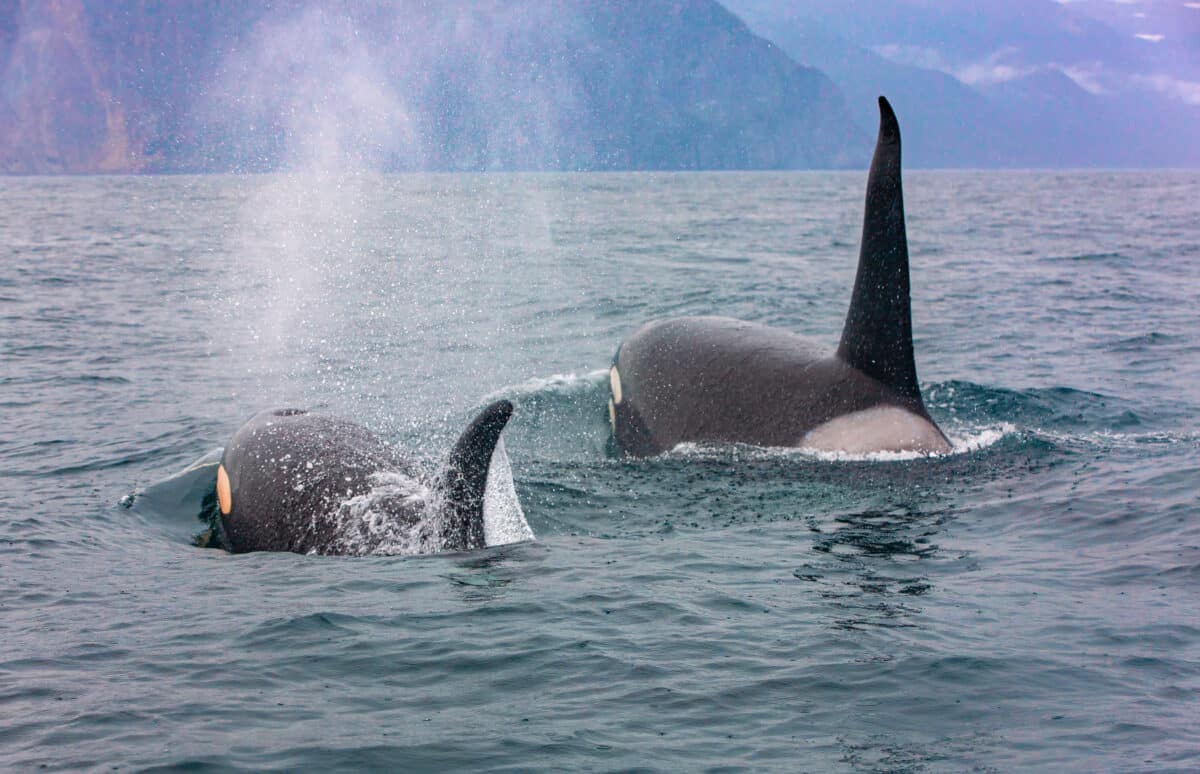
Orcas, also known as killer whales, are highly intelligent marine mammals belonging to the dolphin family. They exhibit complex social structures within their pods, which typically consist of matrilineal family units led by a dominant female, often the oldest or largest member of the group. Orcas are renowned for their distinct black and white coloration, with a sleek and powerful body built for speed and agility in the water.
These apex predators possess a diverse diet, ranging from fish and squid to marine mammals such as seals, sea lions, and even other cetaceans. Their hunting techniques are varied and sophisticated, often involving coordinated efforts within their pod to corral and capture prey. Orcas have been observed employing strategic tactics, such as creating waves to knock seals off ice floes or working together to drive shoals of fish into tight clusters for easy feeding.
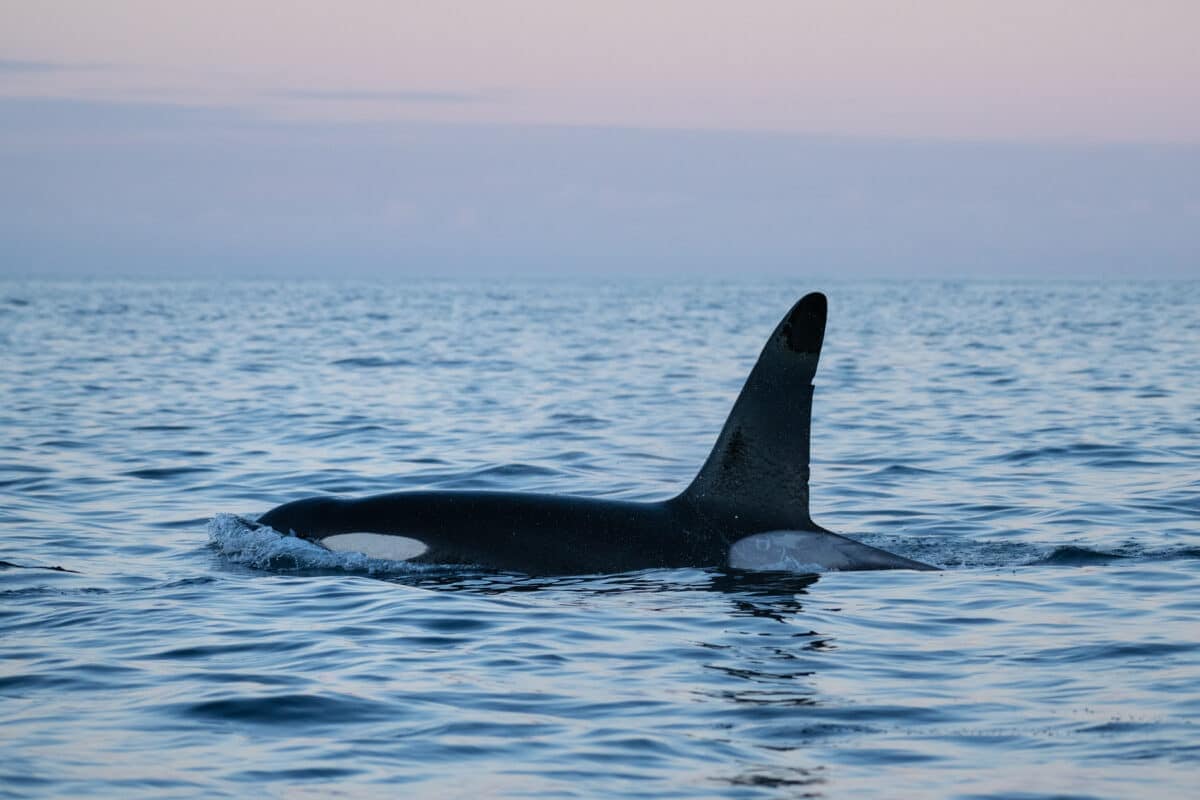
Despite their ferocious reputation, Orcas are not typically aggressive towards humans in the wild, with very few documented cases of attacks. However, in captivity, where their natural behaviors are severely restricted, Orcas have been involved in incidents of aggression towards trainers and other captive animals, sparking widespread controversy over the ethics of keeping these intelligent creatures in confinement. When it comes to the wild, Orcas hunt most sea animals in their path.
Characteristics of Great Whites:
Great white sharks, also known as white sharks or simply whites, are iconic apex predators of the oceanic realm. With their sleek, torpedo-shaped bodies and rows of razor-sharp teeth, they inspire both awe and fear among marine enthusiasts. Great whites are known for their formidable hunting prowess, capable of reaching speeds of up to 25 miles per hour when attacking prey.
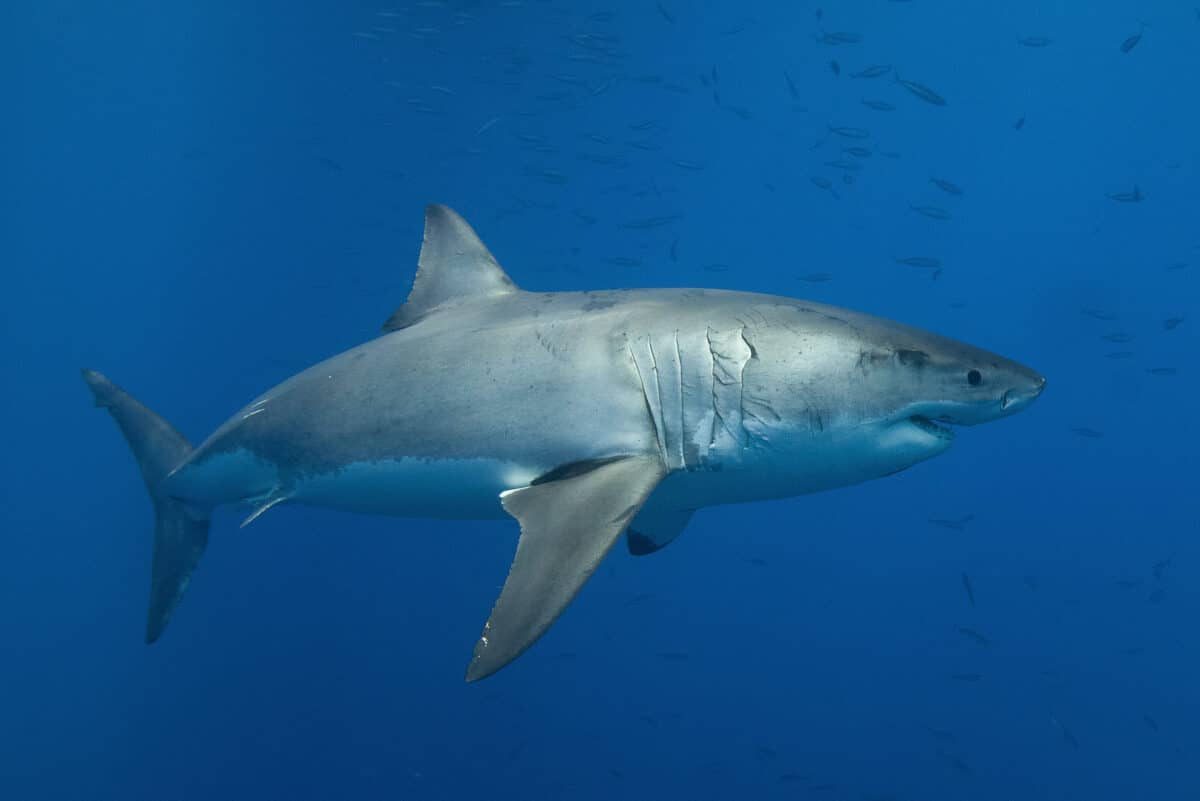
These magnificent predators typically inhabit coastal waters around the world, where they prey on a variety of marine animals, including seals, sea lions, fish, and occasionally other sharks. Great whites are characterized by their keen sense of smell, which they use to detect the scent of blood from miles away, allowing them to home in on potential prey with remarkable accuracy.
Despite their fearsome reputation, great whites are not indiscriminate killers and do not typically target humans as prey. Most recorded encounters between great whites and humans are cases of mistaken identity, with the sharks releasing their victims after a single exploratory bite. Nevertheless, their formidable size and power command respect, and precautions should always be taken when swimming or diving in areas known to be frequented by great whites.
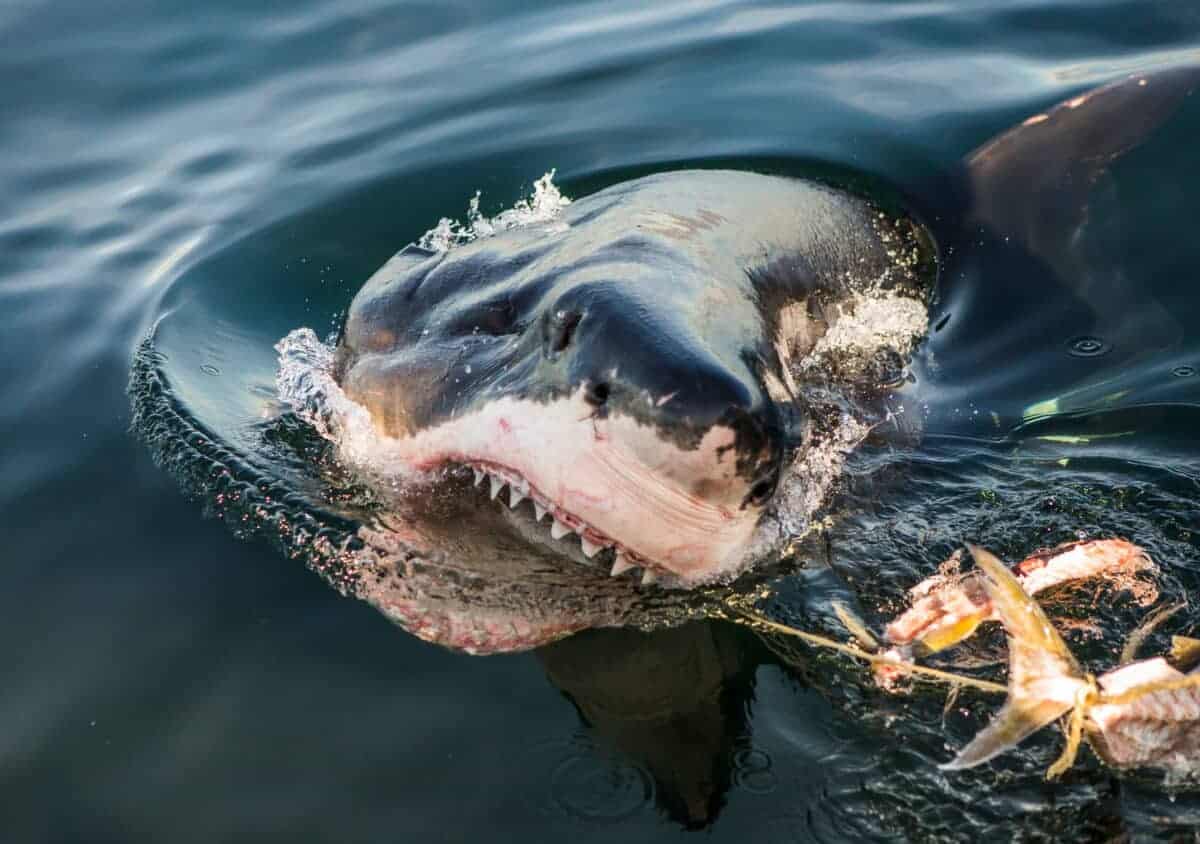
In the dynamic ecosystem of South Africa’s coastal waters, the interactions between apex predators like Orcas and great white sharks offer a fascinating glimpse into the complex web of marine life. As these majestic creatures continue to roam the oceans, their presence serves as a reminder of the delicate balance of nature and the importance of conservation efforts to protect these iconic species for future generations to admire and study.
Below lists some more articles relating to Great Whites and Orcas hunting:
- Great White Breaks Into Shark Cage
- Watch Great White Swim Next to a Surfer in California
- Orcas Sink Boat
Join our Forum for free today!

- Second American Killed by Elephant in Zambia This Year - July 22, 2024
- Elderly Man Kills Grizzly Bear in Montana - July 22, 2024
- Missing Cat Found Weeks Later, 40 Miles Away - July 21, 2024

